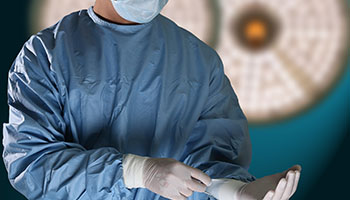Gynecology
Our highly trained gynecological surgeons at St. Mary’s Ambulatory Surgery Center provide women with innovative options when gynecological surgery is necessary. Our facility offers less invasive surgical options for some surgical procedures that enable most women to return to daily activities in less time and with less discomfort than with traditional surgery.
Common Gynecology Procedures at St. Mary’s Include:
Hysteroscopy
Hysteroscopy is a procedure that allows a physician to look inside the uterus to determine the cause of abnormal or unexplained bleeding.
During this procedure, a lighted camera or “scope” is inserted through the vagina and cervix and into the uterus. The scope is connected to a camera that will show the inside of the uterus and allows a physician a better look at the uterine cavity and walls.
Diagnostic hysteroscopy is used to diagnose symptoms or issues. An operative hysteroscopy is used to correct an abnormal condition that is has been found during a diagnostic hysteroscopy. Sometimes these are performed at the same time when during a diagnostic hysterectomy, the physician finds the cause of the abnormal bleeding. The physician can then correct the cause.
Hysteroscopy can be used along with other types of gynecological surgeries and may also include small incisions in the abdomen in order to see the outside of the uterus. Other procedures where a hysteroscopy may be used include laparoscopy or before or during a dilation and curettage (D&C). Operative hysteroscopies are used for a variety of reasons and include:
- Removal of polyps or fibroids (inside or outside of the uterus)
- Scar tissue or adhesions
- Septums (a malformation of the uterus)
- Abnormal bleeding
Dilation and Curettage (D&C)
Dilation and curettage or D&C is a procedure for removing tissue from the uterus and treating a variety of conditions such as controlling heavy bleeding or clearing the lining of the uterus after a miscarriage.
Other reasons for a D&C include:
- Diagnose abnormal bleeding or bleeding after menopause
- Abnormal cells are detected during routine cervical screening (pap smear)
- To collect cells for further study or to diagnose uterine polyps, uterine cancer, or the cause of a thickened uterine lining.
During this procedure, a physician will dilate (open) the cervix in order to enter the uterus. He or she will then be able to remove tissue, polyps, and treat excessive bleeding. Sometimes a D&C is accompanied by a hysteroscopy, which is when the physician uses a thin, lighted instrument with a camera to see inside the uterus.
Missed Miscarriage or Silent Miscarriage
A missed miscarriage is also known as a silent miscarriage or missed abortion, and is when a fetus never develops or fails to continue to develop, but the body is unaware that the fetus is no longer alive and does not begin the process to shed the tissue. A physician will often detect a missed miscarriage during a routine obstetrical appointment either because there is no heartbeat on an ultrasound (usually discovered around 6-8 weeks gestation). This type of miscarriage is generally missed by the mother because there are no typical symptoms of miscarriage, such as heavy bleeding, cramping, or expulsion of fetal tissue.
A missed miscarriage sometimes results in the mother passing the fetal tissue vaginally over time. Other times, intervention is needed to remove the tissue before it causes an infection or other complications. This procedure is called a dilation and curettage or D&C and is when the physician enters the uterus through the vagina and cervix, and using a surgical tool called a curette removes the tissue manually.
Specialties & Services
We focus on offering a high quality, service-oriented environment for your surgical procedure. Our mission is to care for every patient and their family as if they were our own. Each patient, each family, each and every time.
Interested in Outpatient
Joint Replacement?
Click the button below to learn more about Outpatient Joint Replacement at St. Mary’s Ambulatory Surgery Center.






